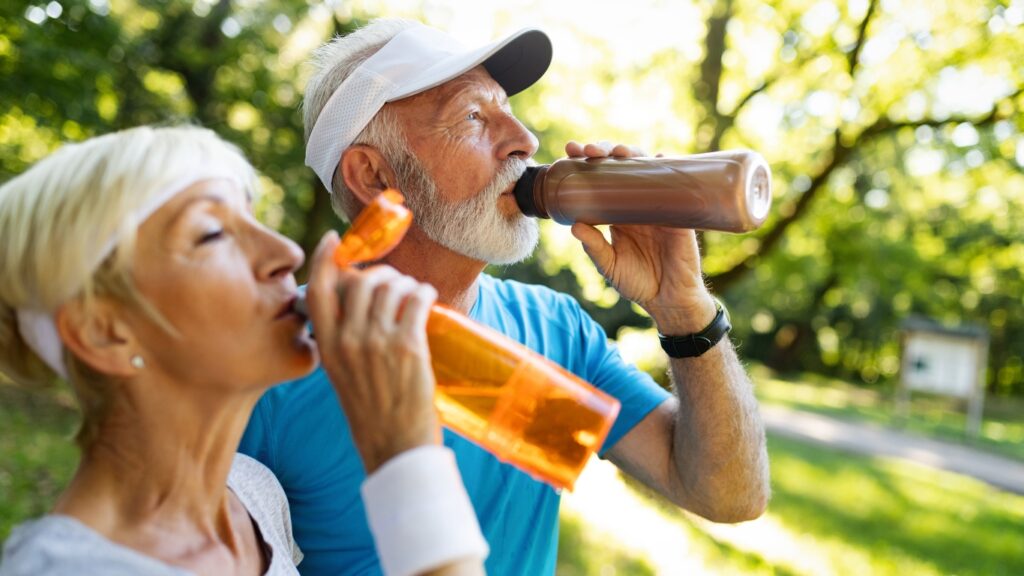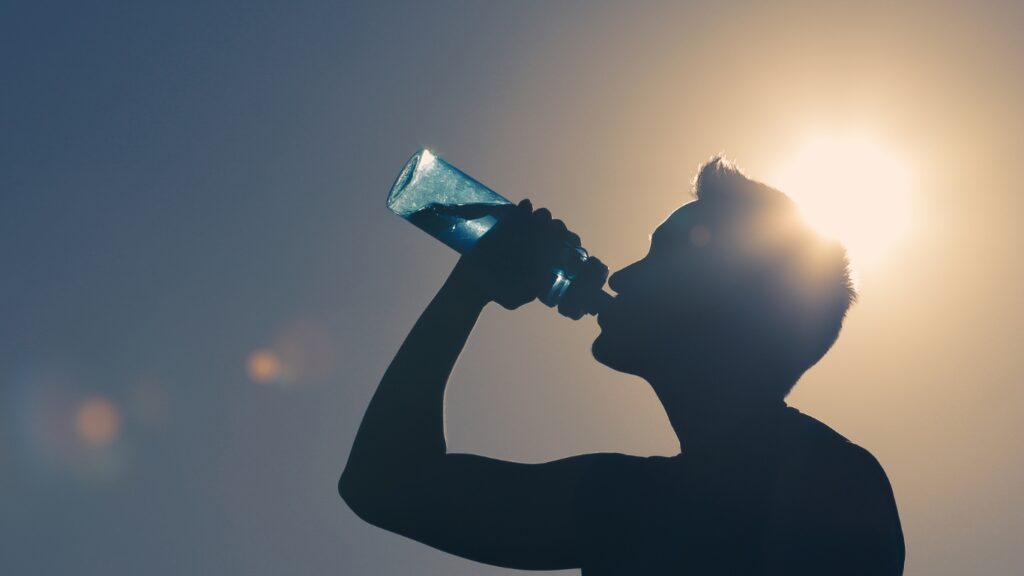
Hydration is extremely crucial for maintaining overall health and well-being in humans. Water is essential for various bodily functions and performance. Let us see how important hydration is, for us.
- Regulates Body Temperature: As the outside temperature rises, body temperature also increases. Water helps in regulating our body temperature through sweating and respiration. Adequate hydration prevents overheating, especially in hot weather or during physical activity.
- Supports Cellular Functions: Water is a vital component of cells, tissues, and organs. It is an important component of biochemical reactions, nutrient transport, and waste removal in the body. Adequate hydration ensures cells function efficiently.
- Aids Digestion: Proper hydration aids digestion by helping break down food and absorb nutrients. It also prevents constipation by keeping the digestive system smooth and regular.
- Maintains Blood Volume: Adequate hydration is crucial for maintaining blood volume, which is essential for proper cardiovascular function and blood pressure regulation.
- Lubricates Joints: Water acts as a lubricant and cushion for joints, reducing the risk of joint pain and disorders like arthritis.
- Supports Kidney Function: Hydration helps kidneys filter waste from the blood and excrete it through urine. This helps in preventing kidney stones and UTIs (urinary tract infections).
- Boosts Cognitive Function: Adequate water intake is linked to improved concentration, alertness, and short-term memory. Dehydration can lead to cognitive impairment, mood changes, and headaches.
- Enhances Physical Performance: Proper hydration improves endurance, strength, and overall physical performance. Dehydration can lead to muscle fatigue, cramps, and reduced coordination.
- Maintains Healthy Skin: Hydration keeps the skin moisturized and elastic, reducing the risk of dryness and wrinkles. It helps flush out toxins that can affect skin health. If you want to have youthful skin, keep yourself well-hydrated.
- Prevents Dehydration-Related Complications: Severe dehydration can lead to serious health issues such as heatstroke, kidney failure, and hypovolemic shock (a condition caused by severe blood and fluid loss).
By drinking sufficient water and consuming hydrating foods, you support these critical bodily functions, contributing to overall good health.
Hydration is essential during the summer season. There is an increased risk of dehydration from higher temperatures and increased physical activity. In hot weather, the body loses more water through sweating as it tries to cool down. This lost water needs to be replenished.
Sweating also results in the loss of essential minerals like sodium, potassium, and magnesium from the body. Drinking enough fluids like juices, coconut water, etc helps replenish these electrolytes, preventing muscle cramps. Moreover, hydration supports healthy skin, which can be affected by sun exposure and heat.
To stay adequately hydrated, it is important to drink water regularly and consume hydrating foods such as fruits and vegetables. It is important to avoid excessive intake of caffeinated and alcoholic beverages, which can contribute to dehydration.
Several of our body functions like digestion, cooling down, etc, slow down if we do not pay attention to proper hydration in summer. It can lead to several diseases. While we have understood that hydration is essential, now the question is how much water do we need to drink?

The amount of water one should drink in the summer varies based on factors such as age, gender, activity level, and overall health. Temperature at your place is also an important factor to consider. However, general guidelines are discussed below :
Adults: It is recommended about 3.7 to 4 liters per day for men and 2.7 to 3 liters per day for women, including all beverages and water-rich foods. People who have higher body weight may need to increase water intake accordingly.
Children: Depending on age, children typically need between 1.3 to 2.1 liters per day. Older children and teenagers may need more, especially if they are very active.
Athletes and physically active individuals: They may need significantly more water due to increased fluid loss from sweating. It is often advised to drink about 0.5 to 1 liter per hour of exercise.
Pregnant and breastfeeding women: Increased fluid needs, with recommendations of about three liters per day for pregnant women and about 3.8 liters per day for breastfeeding women.
People who have pre-existing kidney diseases, urinary tract disorders or another ailment may need more water than others. They must consult their doctor for recommendations.
Water intake cannot be fixed for everyone as it can vary from person to person depending on many factors. In hot weather, it is also crucial to listen to your body and drink water regularly, even if you do not feel thirsty. A person who is indoors in an air-conditioned room will need much less water than a person working in the sun.
In general, apart from tracking water quantity, urine color is a good indicator of your hydration. Dark color urine indicates that you should increase your water intake till the urine color appears light yellow. Other signs of dehydration may include dry mouth, uneasiness, dizziness, and fatigue.
If you know that you will be spending a lot of time outdoors, you must take the necessary steps to keep yourself hydrated. Carry your water bottle and an umbrella for protection. Apart from drinking extra water, try to keep yourself cool to prevent heavy water losses from the body. You should try to be in the shade as much as possible and try to be in cooler places whenever possible.
Pay attention to your diet during the summer. Including hydrating foods such as watermelon, cucumbers, coconut water, chaas, etc in your diet can also help maintain proper hydration levels.
Setting reminders for drinking water can also be helpful for hydration. You may use phone alarms, trackers, or apps to remind you to drink water regularly, especially if you often forget. Some people like to flavor their water to make it more appealing and refreshing. You may try adding natural products like lemon slices, mint leaves, or cucumber slices to make it more enjoyable. Wear lightweight, breathable clothing and seek shade or air-conditioned environments to reduce sweating and fluid loss.